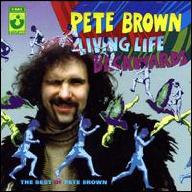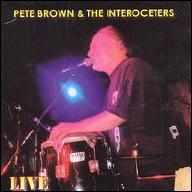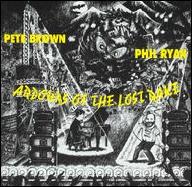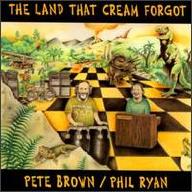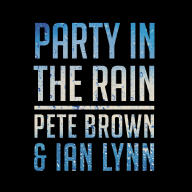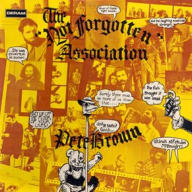Brown was kicking around the scene as a poet until being approached by Cream to assist in songwriting. Upon achieving chart success with the trio, Brown decided to go the musician route. Graham Bond asked Brown to help out with some songs for the Graham Bond Organisation, and he was eventually invited to sing with the group on-stage. Once they broke up, Brown helped form the Battered Ornaments, hoping to work with musicians whose skills didn't dwarf his own. The group fell in with Harvest, the progressive subsidiary of EMI that housed the likes of Syd Barrett, Deep Purple, and Roy Harper. The Battered Ornaments' only record with Brown, A Meal You Can Shake Hands With in the Dark, was released in 1969.
The Battered Ornaments booted Brown from the band on the night prior to a supporting gig for the Rolling Stones at Hyde Park; his vocals on the recording of the group's second record were eventually wiped off. The sacked singer immediately set about forming Piblokto!, a group that, for 1970's Things May Come and Things May Go But the Art School Dance Goes on Forever, comprised bassist Roger Bunn, guitarist Jim Mullen, organist Dave Thompson, and Battered Ornaments drummer Rob Tait. Bunn was replaced by Steve Glover for Thousands on a Raft, which was released six months after the debut. Another shake up in the lineup predated the final Piblokto! release, the single Flying Hero Sandwich.
Brown teamed up again with Graham Bond for 1972's one-off Two Heads Are Better Than One, which featured contributions from several of Brown's former bandmates. With keyboardist Ian Lynn, who played on Thousands on a Raft, he formed Back to the Front, a group that performed but never recorded in their original form. The group lasted until 1977; Brown faded away from music, at least in a performance sense, until 1983's Party in the Rain, which featured most of Back to the Front behind him.
The '90s saw Brown working again with Phil Ryan, a keyboardist who played with Man, the Eyes of Blue, and the final lineup of Piblokto! They made two records together, Ardours of the Lost Rake and Coals to Jerusalem. Toward the end of the decade, he formed the Interoceters, a group that performed songs from his lengthy career. Brown has also maintained a working relationship with Jack Bruce and has participated in the making of several records by other artists. ~ Andy Kellman, Rovi


